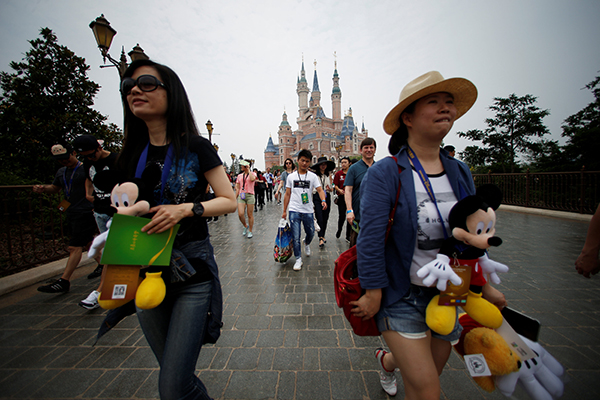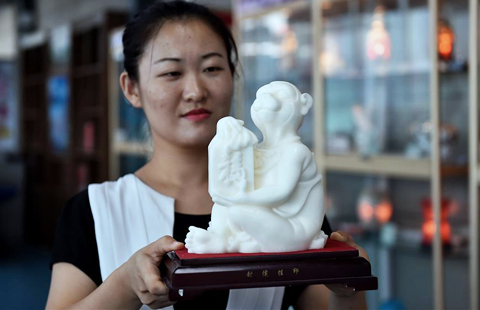Exploding world of Shanghai's resorts and hotels
By Wu Yiyao (China Daily) Updated: 2016-08-29 07:11
 |
|
People walk at Shanghai Disney Resort during a three-day Grand Opening event in Shanghai, June 15, 2016. [Photo/Agencies] |
On Aug 8, Oriental Pearl Real Estate Ltd announced that it is investing in a project that will transform 50 blocks of villagers' homes into a bed-and-breakfast, or B&B, village, just 5 km from the Shanghai Disney Resort.
A shuttle bus will link the village and the theme park.
This is the latest example of real estate developers investing heavily in a variety of hospitality projects aimed at providing accommodation and other services to millions of visitors who are expected to throng the Disney destination in the years to come.
More than 10 developers have been building up commercial complexes in the Pudong area which houses the Shanghai Disney Resort. Hospitality is one of the sectors that will likely benefit a lot from Disney, said analysts.
The two in-house Disney hotels in Shanghai receive 1,000 tourists per day who spend 2,950 yuan each on average. That is, the two hotels gross around 3 million yuan in daily revenue on average occupancy rate of 95 percent, higher than the city's average of 70 percent, according to the Shanghai Tourism Bureau.
That's hardly enough to meet the current and expected demand for accommodation.
"The Disney hotels are fully booked despite their high prices, and hostels in neighboring towns are also fully booked, which shows that demand at all levels, from budget to luxury, is huge," said Wang Hongqing, CEO of the Hospitality Alliance of Chuansha area, which hosts the Shanghai Disney Resort.
Wang said hotel room rates have more than doubled since Disney's opening in May. Further studies may be necessary to understand the nature and extent of tourists' demand and market players' capability to meet it, he said.
A branded budget hotel chain 1.5 km from Disney now charges 700 yuan per night for a room, up about 120 percent from August 2015. In comparison, the corresponding rate at its sister concern at Lujiazui, Shanghai's financial hub, is about 600 yuan now.
Surging room rates reflect the huge gap between demand and supply.
According to the Shanghai Tourism Bureau, Disneyland may attract 15 million tourists per year, among whom 30 percent need to stay in a hotel. This means, 4.5 million visitors will likely seek to stay at a hotel in the area every year.
That translates to an estimated demand for 2 million room-nights per year.
However, currently, there are fewer than 20 three-star or above hotels within 10 km of Disney. The hospitality market sales in the area are estimated to increase by more than 100 million yuan every year, according to a report by Shanghai-based RET Real Estate Consultancy Ltd.
The higher-than-expected demand for Disney-related accommodation has surprised some market players such as Xia Jingwu, 36, who owns a two-star youth hostel 12 km from the theme park. The hostel was originally planned to host visitors to Xinchang, a small ancient town, a hidden gem of cultural heritage in suburban Shanghai, said Xia, but now almost all the guests are visitors to Shanghai Disney.
"I quit a bank job and opened this hostel because I wanted to enjoy a slow-paced life, hearing visitors' stories, drinking tea with them. I didn't expect to see so many guests and fully booked rooms. My schedule has once again become tight due to this heavy business," he said.
- China's top 500 firms report first revenue decline in 15 yrs
- Disney creates new property theme
- Chinese company praised for social responsibility toward Togo youth
- China's crude oil output down in July
- China aims to reduce logistics costs
- Designers interpret connotation of logo of G20 Hangzhou summit
- Full, fair competition in China's telecom industry
- Reforms of Mexico, China set good example for world


















